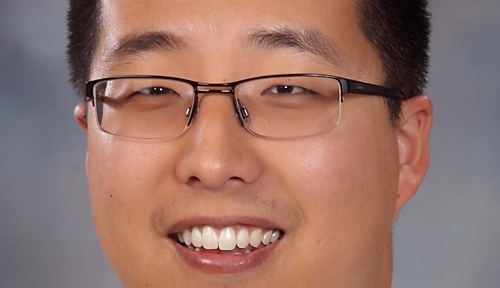|
1. Nebraska Family Helpline: 1-888-866-8660
A 24-hour phone resource to connect children and families in Nebraska to trained counselors. The counselors can provide crisis counseling as well as connect families to local behavioral health providers for additional services.
http://dhhs.ne.gov/behavioral_health/Pages/nebraskafamilyhelpline_index.aspx
2. Disaster Distress Helpline: 1-800-985-5990
A 24-hour phone resource to provide disaster crisis counseling funded by SAMHSA (Substance Abuse and Mental Health Services Administration). It is multilingual and toll-free.
http://www.disasterdistress.samhsa.gov/
3. Nebraska Department of Health & Human Services (DHHS) Division of Behavioral Health: Network of Care
Website where consumers and families can search by state region for a local behavioral health provider
http://dhhs.ne.gov/behavioral_health/Pages/networkofcare_index.aspx
4. National Institute of Mental Health (NIMH) Resource for helping children and adolescents to cope with disaster and violence: advice for parents
Good advice for parents about how to talk to their kids about a terrible event.
http://www.nimh.nih.gov/health/publications/helping-children-and-adolescents-cope-with-violence-and-disasters-parents/complete-index.shtml
5. National Institute of Mental Health (NIMH) Resource for community members coping with disaster and violence
Good for schools and agencies who want to help out after a disaster.
http://www.nimh.nih.gov/health/publications/helping-children-and-adolescents-cope-with-violence-and-disasters-community-members/index.shtml
6. Center for the Study of Traumatic Stress: Restoring a Sense of Safety in the Aftermath of a Mass Shooting
Brief but useful tips for parents and providers on how to restore a sense of safety after a mass shooting.
http://www.cstsonline.org/restoring-a-sense-of-safety-in-the-aftermath-of-a-mass-shooting-tips-for-parents-and-professionals/
7. American Academy of Child & Adolescent Psychiatry: Facts for Families
Links to useful resources and handouts with advice for parents on recognizing PTSD (post-traumatic stress disorder) in children vs. normal grief
http://www.aacap.org/
8. SAMHSA Warning Signs of Trauma after a Crisis
Clinical symptoms to look for in young children, older children, adolescents, and adults
http://www.disasterdistress.samhsa.gov/warning-signs.aspx
9. Nebraska Disaster Behavioral Health Website
This site includes information for clinicians on responding to disasters and resources for additional training.
http://www.disastermh.nebraska.edu/
10. Nebraska Psychological First Aid Training
Contact info and link for first responders and clinicians to learn how to help people immediately after a disaster
http://www.disastermh.nebraska.edu/education/psychological.php
Guide for teachers and students in responding to disaster
http://www.ready.gov/sites/default/files/documents/files/PFA_SchoolCrisis.pdf
EDUCATIONAL RESOURCES FOR PROVIDERS AND THE MEDIA
Here are a few facts and talking points in response to media requests for interviews:
1. Mental illness is very common in the US, affecting about one in four adults in any given year (NIMH website, "The Numbers Count: Mental Disorders in America")
http://www.nimh.nih.gov/health/publications/the-numbers-count-mental-disorders-in-america/index.shtml
2. Most individuals with mental illness are not violent. Although there are certain DSM-IV-TR diagnoses which have been linked to increased risk of violence, such as alcohol abuse, drug abuse, and antisocial personality disorder, individuals must be evaluated on a case by case basis (Fountoulakis KN et al. Personality disorders and violence. Curr Opin Psychiatry 21:84-92. Yu R et al. Personality Disorders, violence, and antisocial behavior: a systematic review and meta-regression analysis. Journal of Personality Disorders, 26(5),775-792,2012.).
3. Violence prediction is not an exact science. It is a clinical judgment which is imperfect. (Miller SL, Brodsky SL. Risky business: addressing the consequences of predicting violence. J Am Acad Psychiatry Law 39:396-401,2011.)
4. There is an urgent national shortage of behavioral health providers, particularly those treating children and adolescents and those working in rural areas. Here is an excerpt from the 2007 Annapolis report:
"As just one example, the federal government has projected the need for 12,624 child and adolescent psychiatrists by 2020, far exceeding the projected supply of 8,312. Currently there are only 6,300 such psychiatrists nationwide, and relatively few are located in rural and low-income areas"
http://www.samhsa.gov/workforce/annapolis/workforceactionplan.pdf
5. Nebraska is suffering a critical shortage of behavioral health providers, and we need to recruit, retain, and train more providers. Here are some facts from BHECN's "Nebraska's Behavioral Health Workforce 2000 to 2010" final report, August 2011.
-
In 2011, 88 of Nebraska's 93 counties were federally designated mental health professional shortage areas. The only exceptions were Cass, Dodge, Douglas, Sarpy, and Washington county.
-
In 2009, 74 out of Nebraska's 93 counties were identified as having unusually high needs for mental health services
-
In 2010, only 15 of Nebraska's 93 counties had at least one practicing psychiatrist
-
Over 80% of psychiatrists, 2/3 of psychiatric nurse practitioners, and 77% of Nebraska psychologists are working in metropolitan counties
-
The workforce is aging, with half of psychiatrists, NP's practicing psychiatry, and psychologists older than 50 years old
http://www.unmc.edu/bhecn/reports.htm
|

